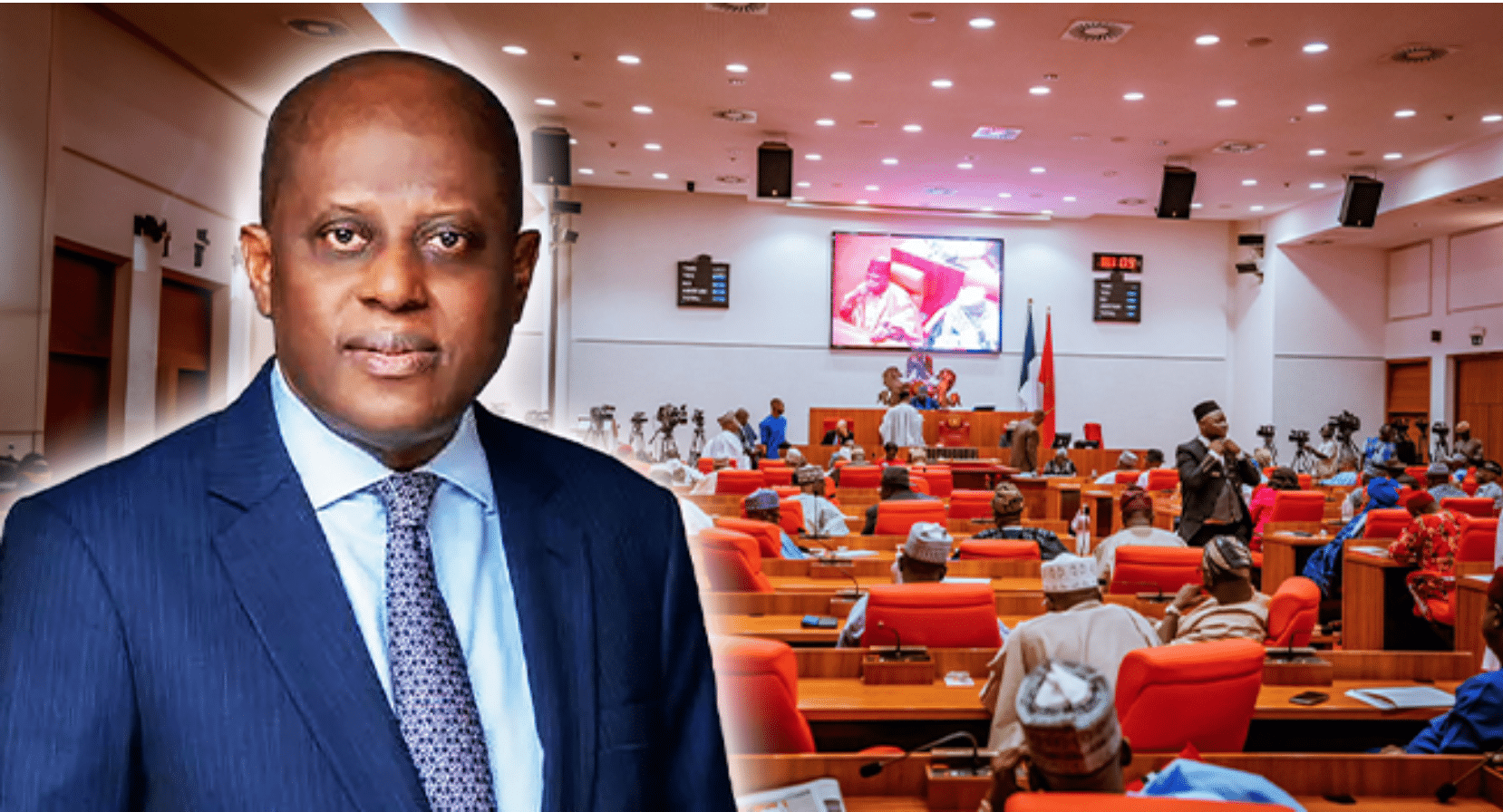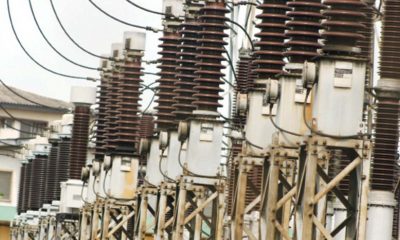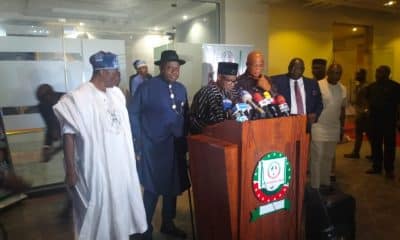Nigeria News
CBN Defends Naira To Dollar Exchange, Inflation Rate, Others At Meeting With Senate [Details]

The Governor of the Central Bank of Nigeria (CBN), Olayemi Cardoso, on Friday, defended the apex bank by stating that it is already taking measures to contain the naira to dollar exchange rate and other related issues causing untold hardship in the country currently.
According to Cardoso, the decisions already taken will not only stabilize the rates but also reduce the negative impact of high exchange rates on inflation, as the two are interconnected.
Naija News reports that Cardoso stated this during an extensive meeting with the Joint Senate Committee on Finance, Banking, Insurance, and Financial Institutions on Friday, where he revealed that the CBN interventions have resulted in an influx of $1bn into the Nigerian market in recent days.
“We have already begun to see shifts in the positive direction. Indeed, they (CBN measures) have already started yielding early results with significant interest from foreign portfolio investors, which was a concern. That has already begun to supply the much-needed foreign exchange to the economy.
“For example, upward of the past few days, we have had over $1 billion that has come into the market, and this quite frankly has answered the question of if our policies are working,” Cardoso said.
The CBN chief stated that based on the available data, he can confidently say that the market has been positively responding to the policies implemented by the apex bank.
He further emphasized that the measures implemented to enhance the supply of US dollars in the Nigerian economy have the potential to reduce the volatility of the exchange rate and subsequently control inflation.
However, he highlighted the importance of Nigeria as a country moderating its demands for foreign exchange in order to ensure the sustainability of these measures.
While the CBN is diligently working towards restoring credibility to the central bank, he reiterated that the primary factor affecting the exchange rate is the demand for US dollars for both business and personal purposes.
Additionally, the CBN Governor assured that inflation is expected to decrease this year through the implementation of the inflation targeting framework, with a projected moderation of 21.1 per cent.
Naija News recalls that on January 31, the committee summoned the Central Bank Governor to appear before them.
The Senators are urging the CBN to provide clarifications regarding the multitude of economic difficulties that the nation is presently confronting.
Lawmakers Make Demands Known
Speaking earlier at the meeting today, the Senator representing Lagos East Senatorial District in the National Assembly, Senator Mikhail Adetokunbo Abiru, underscored the need for a forensic investigation of past transactions and the issue of compliance of the bank.
Given the current food crisis, which has led to increased poverty and insecurity, lawmakers are sceptical about the CBN’s ability to effectively demonstrate the success of its policies to the Nigerian people.
In the midst of this, Senator Orji Kalu strongly advocates for the government to reconsider the use of the dollar in business transactions, expressing concern over the declining foreign direct investment (FDI) in the country.
He also demands to know the plans of the CBN in reconciling with the NLC and TUC to avert the planned strike, a move he says will severely accentuate hunger and hardship.
The legislators express concerns regarding the proposed importation of food as a means to address food shortage, as they fear it may jeopardize the country’s food security and discourage farmers from further enhancing production.
Senator Adamu Aliero emphasized that there is no valid justification for resorting to importation. Instead, the government should prioritize initiatives such as irrigation and revisit the interventionist approach from the past to enhance the agricultural sector’s impact.
The Governor of the Central Bank of Nigeria assured that inflation is expected to decrease this year through the implementation of the inflation targeting framework, with a projected moderation to 21.1 percent.
Regarding the criticism of the CBN’s policies being ineffective, the Governor said that the market is responding positively to the measures that have been implemented.
Furthermore, he claimed that in order to ensure the long-term viability of the policies, it is imperative for the country to reduce its reliance on foreign currency.
According to his statements, the Central Bank of Nigeria (CBN) is diligently striving to regain trust and credibility in its operations. However, he firmly believes that the primary factor affecting the exchange rate is the persistent demand for US dollars for both commercial and personal purposes.












